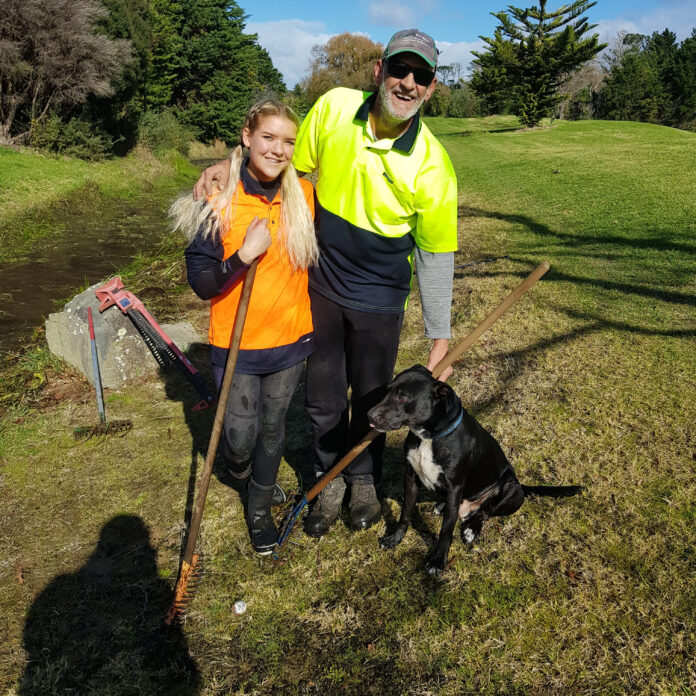Source: Department of Conservation
What comes to mind when you think about golf? Maybe the perfect way to spend a Saturday with friends, a great way to address health and wellbeing, or even achieving that elusive hole-in-one? Possibly all those things. That said, there’s no doubt that all golfers enjoy the serenity of walking down a tree-lined fairway to the sound of native birds. This can only be achieved with habitat restoration and predator-control in place, along with sources of clean, healthy water. Enter an enterprising small business called 2nd Hand Golf that are proud to work under the banner of ‘recycled courses are healthy courses’. They clean waterways on golf courses of non-biodegradables and remove exotic and noxious weeds.
Predictably, a proportion of those non-biodegradables includes golf balls. The team at 2nd Hand Golf recycle these golf balls, clean them up and grade them before selling them on TradeMe. Funds raised from this process support further clean-ups, create employment opportunities, and help promote women and youth golf initiatives.
The state of most of our waterways is poor. The growth of exotic and noxious weeds combined with rubbish dumping chokes our waterways, causing blockages and water stagnation. This decreases the amount of oxygen in the water and can cause algae blooms, both of which have adverse effects on everything that lives in waterways, including native species. Complicating this is the stormwater infrastructure which captures rainwater and runoff from adjacent housing and roading, which floods waterways, bringing with it, sediment.
Recycling and enhancing waterways are key values of 2nd Hand Golf. Once waterways have been cleared of non-biodegradables and weeds, the team also offers services to restore ecosystems, such as riparian planting.
What’s more, 2nd Hand Golf ensures there are social benefits to their mahi. They take pride in providing local employment and are working with organisations to create educational opportunities for youth looking to work in an outdoor environment. They are also conscious that golf has predominantly been a male sport, and therefore promote golf to women and youth as a great way to achieve connection, fun, friendship, exercise, health and mental health benefits.
Currently, 2nd Hand Golf works with courses in Auckland and Northland such as Mangawhai, Whangarei and Takapuna, and more recently, Huapai and Whangaparaoa. The plans for Whangaparaoa golf course are a great example of how they are partnering with others to create healthy ecosystems for native species. Here, they are working with DOC, club members and the local community to create places on the golf course for native birds from nearby Shakespeare Regional Park to spill over to, once their populations increase. Suffice to say, 2nd Hand Golf is excited to scale up and extend their plans to include more courses.
So, it’s nice to know that your wayward shot that ends up in a waterway monitored by 2nd Hand Golf will be retrieved and put to good use in funding waterway clean-ups on your course, and the other courses you enjoy visiting.
It can be difficult for golf courses to find the funds to undertake this work, so the 2nd Hand Golf team is currently seeking further funding opportunities to do more, and plan to organise fundraising golf events to assist in the initial clean-ups. If you would like to support the amazing work of 2nd Hand Golf, buy your next set of golf balls from them.
Golf is a permitted activity under COVID-19 Alert Levels 3 and 2. To familiarise yourself with the guidance visit Golf NZ here.



